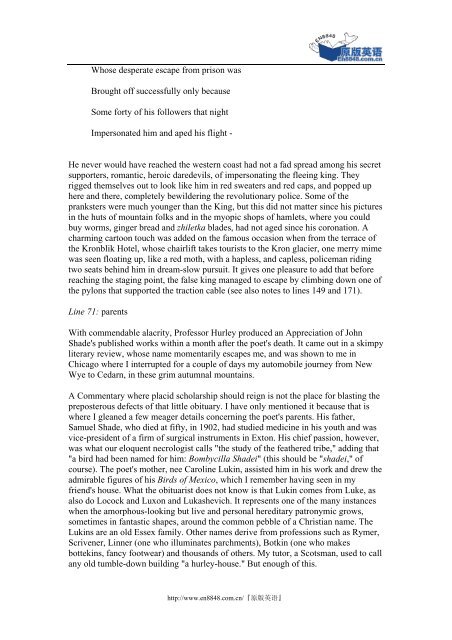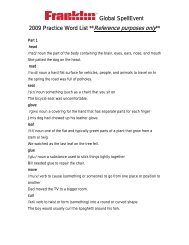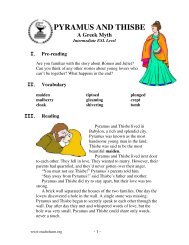Create successful ePaper yourself
Turn your PDF publications into a flip-book with our unique Google optimized e-Paper software.
Whose desperate escape from prison was<br />
Brought off successfully only because<br />
Some forty of his followers that night<br />
Impersonated him and aped his flight -<br />
He never would have reached the western coast had not a fad spread among his secret<br />
supporters, romantic, heroic daredevils, of impersonating the fleeing king. They<br />
rigged themselves out to look like him in red sweaters and red caps, and popped up<br />
here and there, completely bewildering the revolutionary police. Some of the<br />
pranksters were much younger than the King, but this did not matter since his pictures<br />
in the huts of mountain folks and in the myopic shops of hamlets, where you could<br />
buy worms, ginger bread and zhiletka blades, had not aged since his coronation. A<br />
charming cartoon touch was added on the famous occasion when from the terrace of<br />
the Kronblik Hotel, whose chairlift takes tourists to the Kron glacier, one merry mime<br />
was seen floating up, like a red moth, with a hapless, and capless, policeman riding<br />
two seats behind him in dream-slow pursuit. It gives one pleasure to add that before<br />
reaching the staging point, the false king managed to escape by climbing down one of<br />
the pylons that supported the traction cable (see also notes to lines 149 and 171).<br />
Line 71: parents<br />
With commendable alacrity, Professor Hurley produced an Appreciation of John<br />
Shade's published works within a month after the poet's death. It came out in a skimpy<br />
literary review, whose name momentarily escapes me, and was shown to me in<br />
Chicago where I interrupted for a couple of days my automobile journey from New<br />
Wye to Cedarn, in these grim autumnal mountains.<br />
A Commentary where placid scholarship should reign is not the place for blasting the<br />
preposterous defects of that little obituary. I have only mentioned it because that is<br />
where I gleaned a few meager details concerning the poet's parents. His father,<br />
Samuel Shade, who died at fifty, in 1902, had studied medicine in his youth and was<br />
vice-president of a firm of surgical instruments in Exton. His chief passion, however,<br />
was what our eloquent necrologist calls "the study of the feathered tribe," adding that<br />
"a bird had been named for him: Bombycilla Shadei" (this should be "shadei," of<br />
course). The poet's mother, nee Caroline Lukin, assisted him in his work and drew the<br />
admirable figures of his Birds of Mexico, which I remember having seen in my<br />
friend's house. What the obituarist does not know is that Lukin comes from Luke, as<br />
also do Locock and Luxon and Lukashevich. It represents one of the many instances<br />
when the amorphous-looking but live and personal hereditary patronymic grows,<br />
sometimes in fantastic shapes, around the common pebble of a Christian name. The<br />
Lukins are an old Essex family. Other names derive from professions such as Rymer,<br />
Scrivener, Linner (one who illuminates parchments), Botkin (one who makes<br />
bottekins, fancy footwear) and thousands of others. My tutor, a Scotsman, used to call<br />
any old tumble-down building "a hurley-house." But enough of this.<br />
http://www.en8848.com.cn/『原版英语』




